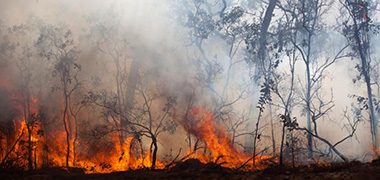
Meteorology courses in Darwin
Course providers in Darwin
The following providers offer Meteorology courses in Darwin.

Career Pathfinder
Skills shortages + AI Exposure
Discover in-demand careers and understand how each role may be impacted by AI and automation.
- See in-demand occupations across Australia
- Check AI Exposure ratings
- Compare training duration and average income
Further reading


Most popular agriculture courses
8th April 2022
Most popular sport courses
21st July 2022All courses
More about Meteorology courses
Explore the fascinating field of meteorology through the dynamic courses available in Darwin, 0820 Australia. With two notable Higher Education options, students can deepen their understanding of atmospheric science and its impactful applications. The Bachelor of Science (Earth Science) equips learners with vital skills in analysing and interpreting environmental data, preparing them for various roles in climate research and environmental consulting. Alternatively, the Bachelor of Science (Environmental Science) focuses on understanding ecological systems, a crucial area for future meteorologists aiming to address global environmental challenges.
For aspiring meteorologists in Darwin, these advanced courses are delivered by excellent training providers like ANU, which has a strong presence in the region. Studying at ANU not only offers face-to-face engagement with leading educators but also provides an enriching campus experience, fostering collaboration with fellow students passionate about the science of the atmosphere. Being situated in Darwin, a region known for its unique weather systems, students can benefit from real-world studies and immediate applications of their learning.
The meteorology courses in Darwin cater specifically to experienced learners, allowing professionals or individuals with prior qualifications to further their expertise. Graduates with these accreditations have a variety of career pathways available, including roles in meteorological agencies, environmental consultancy, and research institutions. Such qualifications particularly enhance job prospects for positions that demand advanced scientific knowledge and practical skills, contributing to sectors ranging from agriculture to disaster management.
